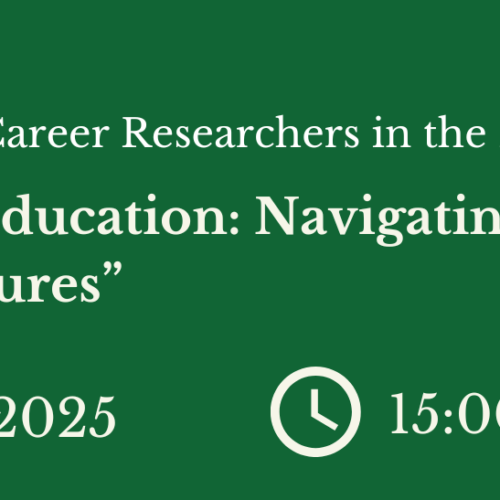CFP: Examinations, Degrees and Diplomas. 6-8 Sep 2018. Deadline: Oct. 31, 2017
Examinations, Degrees and Diplomas
Validation of Competences by Universities from the 12th Century to the Present
International Conference
Organized by Bruno Belhoste (IHMC) and Thierry Kouamé (LAMOP)
University of Paris 1 Panthéon-Sorbonne, September 6 to 8, 2018
Call for Papers
For Émile Durkheim, the granting of degrees fundamentally differentiated the medieval university from earlier educational institutions. Indeed, the validation of competences by universities, from the Middle Ages onwards, has taken the form of regulated examinations, leading to certificates, whose value was recognized by public authorities. As Pierre Bourdieu noted, this formal attestation of skills, which transcended the personal relationship between student and teacher, made the university one of the first institutionalized education systems. Sociology has long been interested in the functioning of university certification. Examinations, degrees and diplomas were analyzed as social institutions, instruments of selection, classification and acculturation, which contributed, depending on the author, either to social mobility or to the reproduction of the elites. Historians of education, too, have studied these issues, by making the degree an object of inquiry, whether it is the medieval and early modern Master of Arts or the modern French ‘baccalauréat’. Furthermore, graduates as a class were subjected to a socio-cultural analysis in order to determine their place in society. However, few studies have scrutinized university certification comprehensively and systematically, across all periods. The time to develop such an approach has come. With the collaboration of the International Commission for the History of Universities (ICHS), the ‘Laboratoire de Médiévistique Occidentale de Paris’ and the ‘Institut d’Histoire Moderne et Contemporaine’ organize an international conference devoted to the validation of expertise by universities, from the 12th century to the present. The purpose of this conference is to chart the historical development of university examinations, degrees, and diplomas, starting at the precise moment when the Church transformed the ‘licentia docendi’ into a standardized administrative authorization procedure. The papers will address these issues from a variety of vantage points.
Further information available here.
Examens, grades et diplômes
La validation des compétences par les universités du XIIe siècle à nos jours
Colloque international
organisé par Bruno Belhoste (IHMC) et Thierry Kouamé (LAMOP)
Université Paris 1 Panthéon-Sorbonne, du 6 au 8 septembre 2018
Appel à communications
Pour Émile Durkheim, la délivrance des grades distinguait fondamentalement l’université médiévale des institutions d’enseignement qui l’avaient précédée. La validation des compétences par les universités prenait en effet, dès le Moyen Âge, la forme d’examens réglementés, débouchant sur des diplômes dont la valeur était reconnue par les pouvoirs publics. Ce contrôle juridiquement certifié des compétences, qui transcendait le rapport personnel entre le maître et l’élève, faisait de l’université l’un des premiers systèmes d’enseignement institutionnalisés, pour reprendre l’expression de Pierre Bourdieu. La sociologie s’est intéressée depuis longtemps au fonctionnement de cette certification universitaire. Les examens, grades et diplômes ont ainsi été étudiés comme des institutions sociales, instruments de sélection, de classement et d’acculturation, qui contribuaient, suivant les auteurs, à la mobilité sociale ou, au contraire, à la reproduction des élites. Les historiens de l’éducation se sont, eux aussi, emparés de ces problématiques en faisant du grade un objet d’histoire, qu’il s’agisse de la maîtrise ès arts médiévale et moderne ou du baccalauréat contemporain. Les groupes de gradués ont en outre été soumis à une analyse socio-historique, afin de déterminer la place qu’ils occupaient dans les sociétés du passé. Cependant, rares sont les recherches qui ont étudié la certification universitaire de manière transpériodique et systémique. Le temps est venu de développer ce type d’approche. En collaboration avec la Commission Internationale pour l’Histoire des Universités (CISH), le Laboratoire de Médiévistique Occidentale de Paris et l’Institut d’Histoire Moderne et Contemporaine organisent un colloque international consacré à la validation des compétences par les universités du XIIe siècle à nos jours. Cette rencontre a pour but d’embrasser dans un même mouvement l’histoire des examens, grades et diplômes universitaires, en partant justement du moment où l’Église a transformé la licentia docendi en une procédure normalisée d’autorisation administrative. Les communications pourront aborder ces questions sous des angles variés.
Vous trouvez plus d’informations ici.
About author
You might also like
CFP: Early Career Conference Paper Award ISCHE 39, Buenos Aires
ISCHE now welcomes Doctoral students or Early Career Researchers to submit the papers presented at ISCHE 39 in Buenos Aires to this year’s Early Career Conference Paper Award. The ISCHE Early
Call for Pre-Conference Workshop Proposals
Call for Pre-Conference Workshop Proposals @ ISCHE 42, Örebro August 2020 ISCHE Looking from Above and Below: Rethinking the Social in the History of Education Deadline for handing in Pre-conference
Call for Applications History of Education Doctoral Summer School – Groningen 9-12 June 2016
The 7th annual History of Education Doctoral Summer School, which will take place at the University of Groningen, The Netherlands, 9-12 June 2016. Applications are invited from postgraduate students in




